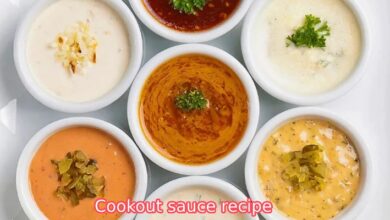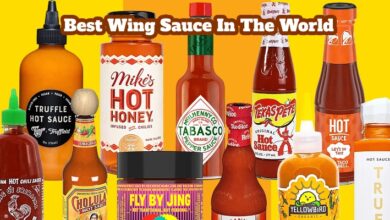Can Dog Eat Spaghetti Squash?
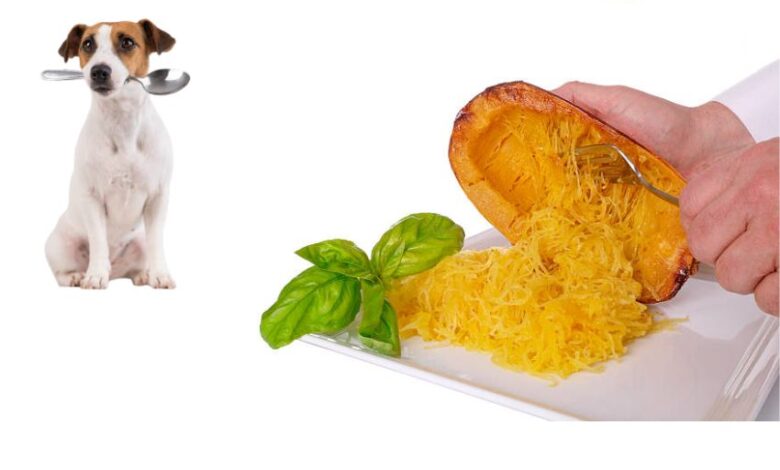
As an avid pet owner, you’re always looking for ways to make sure your furry family members are staying healthy and vibrant. But when the question arises can dog eat spaghetti squash? it can be tough to answer definitively! Fortunately, we’ve got all the facts on this delicious and nutritious veggie so you know whether or not it’s safe for your pup. In this blog post, we’ll explore exactly what spaghetti squash is made of, why some dogs may find it beneficial as part of their diet, along with potential risks that owners should be aware of. Read on to learn more about how this unique vegetable could help give your canine companion the necessary nutrition they need!
Can My Dog Eat Spaghetti Squash?
Spaghetti squash has become a popular vegetable swap due to its noodle-like texture. While it’s an excellent and nutritious low-carb option for humans, can our canine companions also enjoy its fibrous goodness? The answer is yes, with a few precautions. Spaghetti squash should be cooked before given to your dog, as consuming the raw rind can cause intestinal blockage. The seeds should also be removed before cooking. Aside from this, small servings are safe for dogs and may provide them with vitamins A, B6, and C along with dietary fiber. Monitor your pup’s reaction to it and always talk to your vet if you have any questions or concerns about adding squash to their diet.
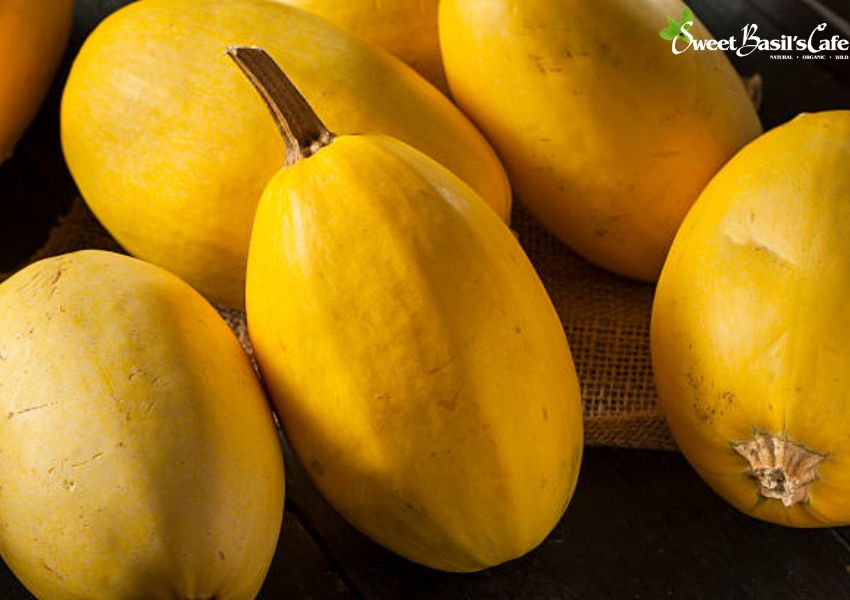
Can Dogs Eat All Types Of Squash?
The answer to this question depends on the type of squash. While some varieties are safe for dogs, like spaghetti and acorn squash, other types may pose risks for our furry friends. The most important distinction is between winter quash (like butternut and Hubbard) and summer squashes (such as zucchini). Winter squashes have harder rinds and larger seeds, which can cause intestinal blockage if eaten raw. Summer squashes have softer shells and smaller seeds, making them much safer for dogs to consume when cooked. Therefore, it’s important to be aware of the type of squash you are giving your pup before feeding it to them.
How To Feed Spaghetti Squash To Your Dog
Now that you know it’s safe for your pup to enjoy spaghetti squash, let’s talk about the best way to feed it. As mentioned before, the squash should always be cooked before given to your dog. This will help make sure all the nutrients are retained and that there is no risk of an intestinal blockage. Cooking methods such as baking, boiling, or steaming are all fine. Once the squash is cooked, you can cut it up into small pieces and mix it with your pup’s food. Make sure to monitor their reaction after giving them the squash and adjust their portion sizes accordingly.
Is Spaghetti Squash Good For Dogs? 3 Health Benefits
Now that we know it’s safe for our canine companions to enjoy spaghetti squash, let’s explore the potential health benefits of this unique vegetable.
- Add vitamins and minerals to your dog’s diet: Spaghetti squash is a good source of vitamins A, B6, and C as well as dietary fiber. These can help support your pup’s immune system, coat health and digestion.
- Boost your dog’s immune system: This veggie is also rich in antioxidants, which can help protect your pup from free radical damage and boost their immunity.
- Support a healthy gut: The dietary fiber in spaghetti squash can also help support a healthy digestive system by aiding in the absorption of essential nutrients.
Squash Nutrition Facts:
- Calories: 31
- Fat: 0.1 g
- Carbohydrates: 6.8 g
- Fiber: 1.2 g
- Protein: 0.9 g
- Vitamin A: 11% of the RDI
- Vitamin B6: 8% of the RDI
- Vitamin C: 6% of the RDI
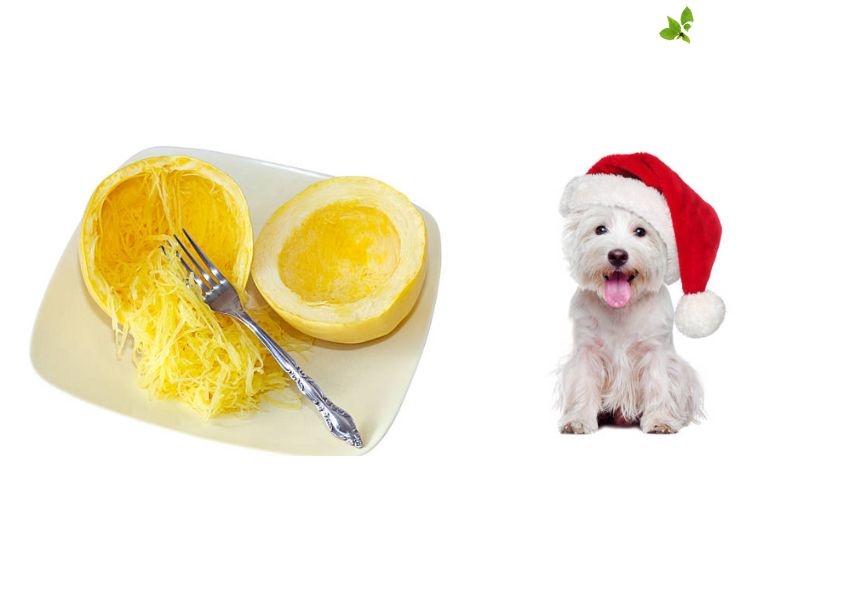
3 Considerations Before Feeding Spaghetti Squash To Dogs
Now that you know a bit more about the potential health benefits of this unique vegetable, let’s go over a few things owners should consider before feeding it to their pup.
Spaghetti Squash Seeds Can Be Toxic To Dogs
Did you know that, if fed to Fido, spaghetti squash seeds can be toxic? Even though they look like pumpkin seeds and aren’t as hard, they can potentially make an animal seriously ill. The toxicity comes from the amount of cucurbitacin in the seeds – a compound that acts as a natural defense against pests and other animals who may eat it but causes gastrointestinal irritation if eaten in large amounts. Fortunately, pet owners should be fine as long as they get rid of any spaghetti squash seeds before allowing their pup to enjoy the rest of the vegetable. To stay on the safe side, just don’t let your pooch near spaghetti squash!
The Rind Can Be A Choking Hazard
Another thing for owners to be aware of is that the rind of spaghetti squash can pose a choking hazard. To avoid any risks, make sure to cut the squash into small pieces before feeding it to your pup.
Overeating Spaghetti Squash Can Lead To Stomach Upset
Finally, owners should be mindful of how much spaghetti squash they give their pup. Too much of this veggie can lead to an upset stomach, so it’s important not to overfeed your furry friend.
In conclusion, spaghetti squash is a safe and nutritious vegetable that can make a delicious treat for our canine companions – as long as it’s prepared properly. With these tips in mind, pet owners can feel confident about introducing this unique veggie into their pup’s diet.
Before Sharing With Your Pooch
Before wrapping up, let’s review some of the key points to keep in mind when including spaghetti squash in your pooch’s diet.
- Always remove the seeds before giving it to your pup.
- Cut the squash into small pieces and always monitor how your pup reacts after eating it.
- Avoid overfeeding, as it can cause a stomach upset.
By following these simple guidelines, pet owners can feel confident about sharing this delicious vegetable with their beloved pup!
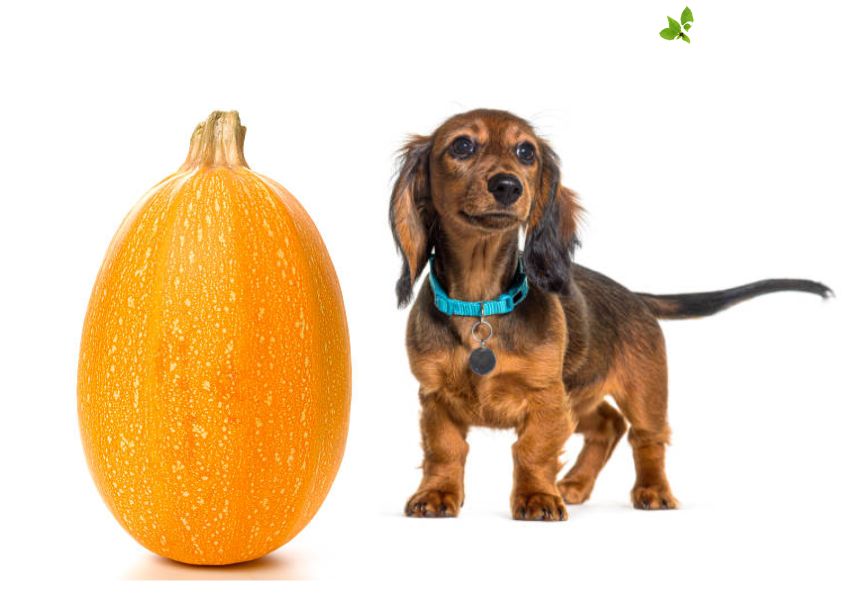
Frequently Asked Questions
How much spaghetti squash can a dog eat?
Because every pup is different, it’s best to give your dog small amounts of spaghetti squash at first and then increase the portion size if needed.
Can I feed my dog cooked spaghetti squash?
Yes! As long as you avoid adding any seasonings or oils, cooked spaghetti squash can be a great addition to your pup’s diet.
Are there any other health benefits to spaghetti squash?
Yes! Spaghetti squash is also a good source of potassium, magnesium, and folate – all of which can help support your pup’s overall wellbeing.
Is squash toxic for dogs?
No, in general squash is not toxic for dogs. However, spaghetti squash seeds can be toxic if consumed in large amounts. It’s best to remove all the seeds before feeding your pup the rest of the vegetable.
Are spaghetti squash seeds bad for dogs?
Spaghetti squash seeds can be toxic for dogs if eaten in large amounts. To avoid any risks, make sure to remove all the seeds before feeding your pup the rest of the vegetable.
What kind of squash can dogs eat?
Dogs can safely eat a variety of different squash, such as butternut, acorn, and spaghetti squash. Just make sure to remove the seeds before offering it to your pup.
Can dogs eat raw spaghetti squash?
Yes! As long as you take out the seeds first, dogs can enjoy raw spaghetti squash as a tasty snack.
Conclusion
Spaghetti squash is a safe and nutritious vegetable that can make a delicious treat for our canine companions – as long as it’s prepared properly. With the right preparation and portioning, pet owners can feel confident about introducing this unique veggie into their pup’s diet. By following these simple guidelines of Sweet Basil’s Cafe you can feel confident about letting your pup enjoy the delicious taste of spaghetti squash!

